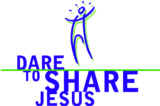General Board of Global
Ministries
![]()
UM Information
![]()
UM Reporter
![]()
![]()
Favorite Places
![]()
![]() Florida Southern College
Florida Southern College
![]()
![]() Bethune Cookman College
Bethune Cookman College
![]()
![]() FL
UM Children's Home
FL
UM Children's Home
![]()
|
|
1999
Annual Conference |
| New structure discussed at event
By Michael Wacht LAKELAND — When Anna Gail Dixon Workman agreed to be a member of the Connectional Process Team (CPT), she said she was "very afraid." Her fear was that an in-depth look into the global structure and connection of the United Methodist church would reveal an ugly side of the church that would cause her to turn away from her lifelong denomination. "My prayer was that I wanted to be a United Methodist when this is over," she said.
Workman says her job as an interpreter of the CPT is to present the team’s findings to Florida’s delegates and "lift up the high spots" in the report, adding an explanation of the team’s mandate and mission. She says her most important task, however, is to get feedback from the Florida Conference. "Mostly what I’m coming for is to listen," she said, "to hear what’s important to your conference." Much of the controversy over the CPT’s report has centered on the global restructuring of the United Methodist Church, which Workman says is only one point out of 14 the team was asked to consider. "We were 38 people from all over the world that met seven times for a total of 30 days, speaking five languages and working on 14 mandates," she said. "We were given an impossible task…we’re trying to be faithful." Workman says perhaps the greatest impact the report is likely to have on local churches is in the area of connection. "We’re a connectional church," she said. "How we are connected is very much a part of the CPT report." She said the team looked at many of the functions of the United Methodist organization beyond the annual conference and asked "does this help the local church make disciples?" and "is this something that can’t be done alone?" "Everything we do should focus on the local church, but we should not become a congregational denomination," she said. The team discussed the historical significance of covenant groups within Methodism and proposed ways all levels of the church can be organized around "a common table for everybody to come and do visioning," Workman said. Also in the CPT report is a proposal to make the Book of Discipline a global document. Currently, the Discipline is a United Methodist document created in the United States and adapted locally by international conferences. The new Book of Discipline would contain "the things we hold true throughout the world," she said, with specific national issues discussed at Continental Central Conferences. Workman says what she presents at the Annual Conference Event is only a first draft. The goal is to obtain feedback from United Methodists. "I’m very proud to be a United Methodist, even with all the uglies," she said. "We’re doing a lot of good stuff, despite our imperfections." Top
of this page |

